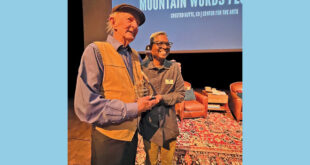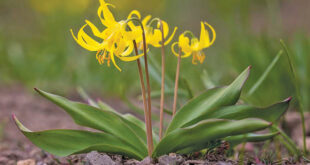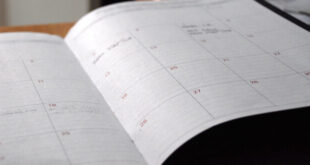“Home is where I want to be but I guess I’m already there
“I come home, she lifted up her wings… guess that this must be the place…”
—This Must Be The Place, Talking Heads
“Welcome home,” Jason Vernon smiled as I walked through the door of his newly renovated Kochevar’s. Newly renovated, but hauntingly familiar, the bar had reacquired its historic coal mining days’ ambiance, shedding the cloak of sleazy dive. Even the long-time local patrons looked classier sitting at the reupholstered barstools.
Don’t worry—it’s still a down-home bar. On the walls, in every nook up to the ceiling and hanging from the heights were remnants of the town’s past that hadn’t seen the light of day in many decades but had never left the rambling wooden building. Each piece told a story, a day, a year, a lifetime of generations of Kochevars and unfolded a thread of the history of Crested Butte.
“This is a women’s bar. Before it was mostly men. Look at the bar, mostly women now,” Jason said as he nodded down the length of the Brunswick-built bar, its planks darkened from the brews of 19th-century miners and cowboys, 20th-century hippies and ski bums, and 21st-century newcomers and tourists amused with the antics of a crazy little eclectic town. Plus, bathroom walls that, on one hand, could boast tall tales, and on the other hand, are stained with the tears of unrequited love.
Jason has become Kochevar’s caretaker, a keeper of stories learned, with the reverence of one who’s been charged to protect the Holy Grail of Crested Butte. The memories embedded in objects, places, times… history recalled and laughter relished, of friends and loved ones past and present. It’s what triggers our sense of place. It’s what makes home …comforting and instinctive. You can hang your clothes in the closet, your pictures on the wall, set your tchotchkes on the shelves, but it ain’t home unless it embraces you and calls you by name.
It took Jason and his crew a week in plastic suits with respirators to get through the mountainous attic accumulations. “It was a massive junk pile, years of people just dumping stuff on top of stuff with a central pathway. From broken chairs and tables, to goofy artifacts, random bottles and cans and little treasures, piled up on top of each other and covered in decades of dust. We spent days with five guys in plastic suits and breather masks pulling down antiques and wiping them with moist rags and gentle cleaning.”
The imposing Estate Oak potbelly stove stands in its nickel-plated glory in the middle of the barroom, still smoldering with the conversations of some of Crested Butte’s original families, gathered around with a brew, laughing and probably talking about the day’s work in the mines and the goings-on in the dusty town. Today, the stove still burns the black pungent coal and cranks out inferno BTUs as patrons shoot pool in a sort of extended living room of their condos and houses.
Just above the second pool table, placed high over a door shelf, is an eagle in flight. Well, half an eagle, “The tail fell off… it’s upstairs,” Jason shrugs. The big bird is stuffed and disheveled looking from neglected years in the attic, but it sports a doll’s arm dangling from its razor beak for effect. It’s perched on a crankshaft from a Model T Ford, the kind with a fly wheel and pinion gear attached because you had to turn a crank on the front of that early model car to get it started.
Jason explains, “You had to put fuel in the top, turn the power on and crank it.” Rumor has it that the predator bird landed on a power line and fried, and then Matt Kochevar did his taxidermy magic. “I have his taxidermy license on the wall, it’s from 1936,” Jason points to a framed certificate with artfully scripted writing and an official seal.
Young Dorothy Kochevar’s dolls and carriages are scattered throughout the bar—there’s one missing an arm—invoking a creepy hominess. Dolls are strategically placed where you might not expect to suddenly see one glaring down at you. “The whole idea is that every time you go into a cool bar anywhere in the world there’s great stuff on the walls and little conversation pieces that challenge your sensibilities,” Jason observed.
The women’s powder room of any public space is a comfort zone, a sort of second home for women, a sanctuary in the heart of the milieu. Much of the attic finds of the grown-up Dorothy’s personal grooming items are arranged with the flair of a woman’s toilette in the women’s bathroom of the bar, along with a photograph of some cheesy-looking guy named Cliff hugging his guitar and smiling coyly through a bushy mustache of 1970s vintage. No one has yet admitted to knowing Cliff or anything about him but the photo has been signed, “Have a great night ladies, Love, Cliff” and it will shock any woman with a decent sense of style and discernment on her way out the door.
Jason has a display of locks of various sizes, mid- to late 19th century, all of which were on various doors in the building—a mastery of American ingenuity in their inner mechanisms with a series of springs and levers that engage in the simple task of opening a door when you turn the doorknob. A little metal tab stops the mechanism movement of the boxy lockset to keep intruders from entering your room, all for that sense of security. Enormous metal drill bits protrude from the wall overhead. “The drill bits, from what I’m told, were used in making some of the roads going over toward Marble [as written in native Buttian author John Tezak’s book, Return to Eden, pages 48-51]. Tezak talks about blowing the road with dynamite and carving out the Schofield Pass Devil’s Punchbowl. The book ties in to everything on the walls,” Jason says.
In the main barroom, hanging on either side of a large elk head, is what Jason calls Carolina’s (Kochevar) kitchen cupboards, which host her canned goods, spices, Farina, Jello chiffon pie mix, puddin’ cake mix and notably, a jar of flaxseed from the Crested Butte drugstore. Home has always been where the hearth is and nothing says home like mom’s cooking. Returning from college or war, or coming back home to visit, people find food a comforting celebration, a bonding as the family shares meals, toasts the good times with wine and breaks bread together.
The original gambling games and tables are still in their places of honor. The slot machine was pulled out of a junk pile up on the mountain by Jake and Matt Kochevar when they were young boys. The buffalo head bids farewell to you over the transom of the front door as you leave. It came from the Columbus, Ohio zoo after the live animal gored one of the zookeepers. Matt Kochevar knew someone in Ohio and was able to get the entire front end shipped here; then he did the taxidermy himself.
The old family saddles, home to many a cowboy, are behind the bar back, worn smooth from lifetimes of riding.
A misshapen bicycle is mounted on the corridor wall, not quite ready to pedal into the now, although many a current Buttian would feel right at home in its seat. There are lids and cans, horseshoes, axes and pulleys, bottles of colored, bubbled, thick glass whose contents are no longer known, tinctures of long ago and long evaporated. Wagon wheels float above the room from the ceiling, right next to horseless carriage iron wheels—both moved new generations across the continent in search of new homes. Everything tells a story of a place and a home in time.
Jason says, “The countless jars and knickknacks aren’t necessarily valuable but represent the time, the period, the age. Moreover, it’s just a wonderful historical representation of how much the town of Crested Butte has gone through. The strength, the inventiveness, the creativity of its people. This Kochevar family, along with so many other families that set the precedent for Crested Butte, were some of the most hard working people I’ve ever come across. Unbelievable adversity in weather, location, and technology. Hard living, hard people. I’m really humbled by their strength the sheer willpower to stay in this valley, make it beautiful and survive,” Jason says respectfully and in awe of those who endured the hostile extremes of a mountain mining town. All because they instinctively knew it was home. It was in their bones, it was where they were supposed to be, from the depths of the mines to the barroom floor to their family table—to chat and laugh and polka, to live. It gave them their spirit, as it gives us ours today.
Kochevars, 1984, it’s 1:30 a.m. and of the many times and years my local band played the raucous bar, this was to be the first and last with a new Boulder band I had just joined. I had reluctantly left my Crested Butte home for the financial and musical opportunities Boulder could provide. The van packed, guitars stashed, cords and microphones tucked away and waving a tearful goodbye to defiant friends barely balanced on barstools and lingering in hopes of that last chance at romance… all familiar faces, part of my community family. The Red Lady crown I had won that night roosted on the buffalo’s head for safekeeping until I could visit or return. Time passed, as it does too quickly, and through 20 years of gigs, wandering, East Coast living and life changes, I never found anything remotely resembling that uniquely Buttian community.
In 2004, I stepped off a plane at the Gunnison airport and back into that dusty hole in the wall of Kochevar’s. I swear the same people were sitting on those same barstools, looking somewhat more worn but just as happy as when I left them there two decades earlier. Flash looked up from tending bar, cocked his head and asked, “You been gone?” I felt like I was a puzzle piece that had just been fitted into place. It felt like home. I flew back to New York, packed two suitcases, put everything else in storage and moved back. Home is where your history lives. Home is where you feel free. I am happily rusted in time and memories—and finally, home.
“…And you’re standing here beside me, I love the passing of time.
Never for money, always for love. Cover up and say goodnight . . . say goodnight”
—This Must Be The Place, Talking Heads
 The Crested Butte News Serving the Gunnison Valley since 1999
The Crested Butte News Serving the Gunnison Valley since 1999




